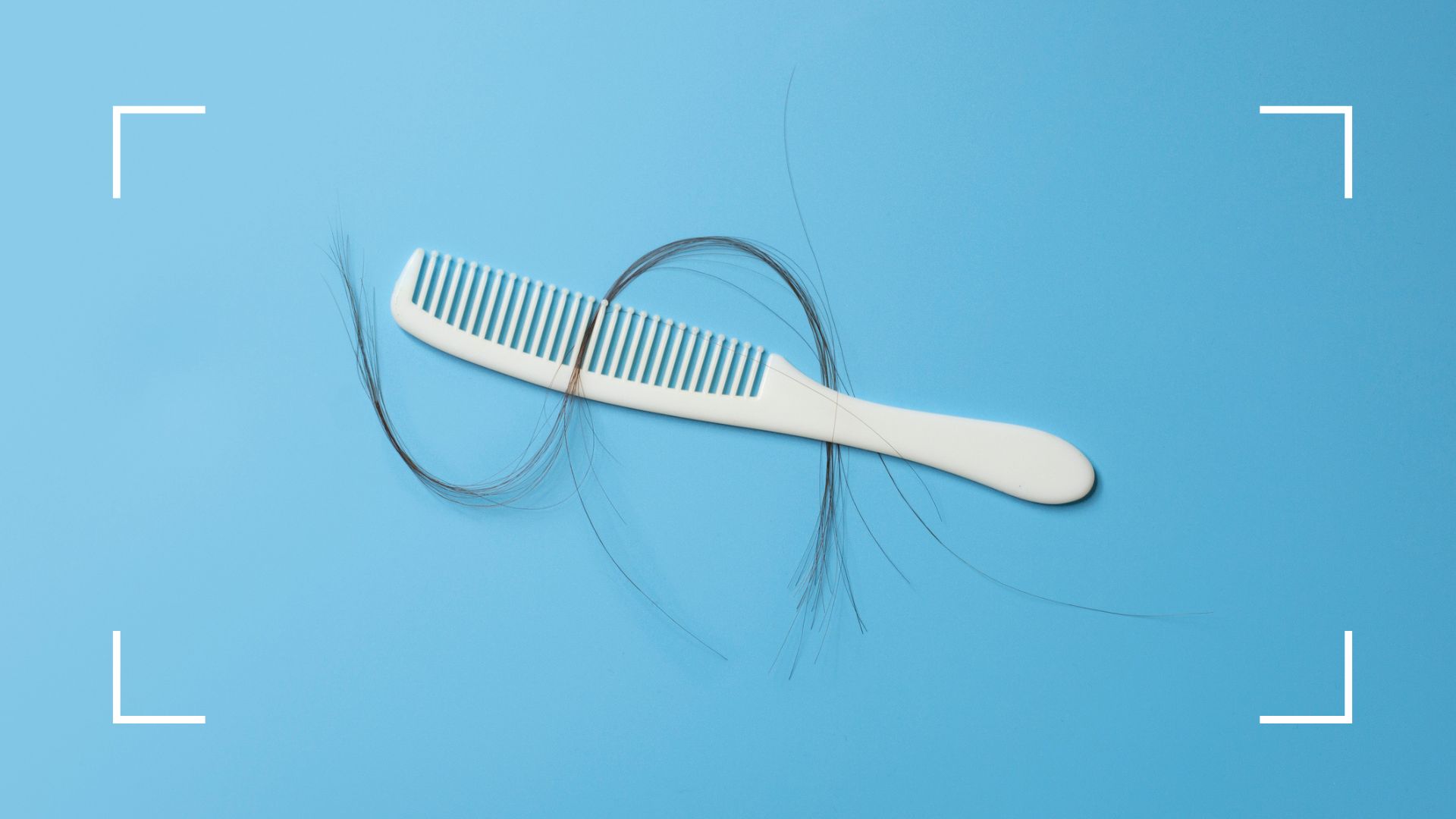Does Ozempic cause hair loss? Doctors reveal the truth about the drug's side effects
Social media users have been reporting hair loss after using Ozempic. This is what doctors want you to know about the side effects of the drug


Does Ozempic cause hair loss? As demand for it and similar weight loss drugs increases, users have taken to social media to share concerns that the injectable may cause some worrying side effects.
Ozempic is one of the brand names for a diabetes drug called semaglutide, a medication that can help those with the condition manage their glucose levels and has the side effect of appetite suppression. It's been around for years but in recent months Ozempic has become a hot topic of conversation as a shortage of Wegovy (the drug's sister brand approved for weight loss) led to Ozempic's off-label prescription as a weight loss drug.
Following the FDA's approval of Ozempic for people with diabetes in the US in 2017 and authorities in Canada approving its use the year after, Ozempic has slowly begun to make its way around the world. It has been available in the UK since 2019 with NICE recommending Wegovy for use on the NHS in March 2023. There is no sign that our fascination with the drug and the effects of Ozempic for weight loss is going anywhere.
However, as more people take weight loss drugs like Ozempic and Wegovy, there are more reported side effects. "I’ve been on Ozempic since late September of last year and recently (maybe a month or so) I’ve noticed my hair is shedding a lot, like every time I brush it my brush has a full [clump] of hair, or if I run my fingers through it a bunch of strands come out straight with the root!" says one Reddit user on the Ozempic subreddit. Another on the same thread said that "chunks are coming out in the shower" as well.
Of course, there are side effects that come with every medication out there and we know that there can be many causes of hair loss in women, so what could really be going on? Whether you're taking Ozempic, thinking about it, or are interested in how drugs prescribed for weight loss work, this is what two doctors want you to know about the link between Ozempic and hair loss.
Does Ozempic cause hair loss?
Hair loss isn't listed as a side effect of Ozempic on the prescriber information (PI), explains Dr James Harris, an award-winning hair restoration specialist, but ultimately, the data makes it hard to tell. "Since the PI for Ozempic does not list hair loss at all as an adverse reaction, it could either be that there were in fact no reported cases with hair loss or the number was so small as to not meet the threshold for a reportable event," he explains. "This could be the case, for example, if 1% of patients on the placebo [no drug] had hair loss and 1% of patients on the Ozempic had hair loss. There would be no way to distinguish whether or not the medication caused the hair loss."
Wegovy is a slightly different story. In clinical trials for the drug, which is specifically prescribed for weight loss, 3% of patients reported hair loss side effects compared to 1% of patients in the placebo group. However, the prescribed dosage for Wegovy is higher than for Ozempic, Dr Harris, who is also the medical director at Restore Hair, points out.
Sign up for the woman&home newsletter
Sign up to our free daily email for the latest royal and entertainment news, interesting opinion, expert advice on styling and beauty trends, and no-nonsense guides to the health and wellness questions you want answered.
"The higher dose could cause more hair loss and therefore could account for it being listed as an adverse reaction for Wegovy and not for Ozempic," he explains. "In other words, a slightly higher dose could account for a higher rate of this reaction."

The link between weight loss and hair loss
There could be another reason why those taking Ozempic are reporting hair loss like this though. The purpose of Ozempic's off-label prescription and Wegovy is to elicit rapid weight loss, specifically in those who are classified as 'obese' but in anyone who takes the drug. Substantial weight loss by any method - especially when done quickly - is a major stressor on the body. When the body goes through major stress like this, a condition called telogen effluvium can develop.
Telogen effluvium, according to a review by Dow University of Health Sciences, is one the leading cause of hair loss (alopecia) in women and men aside from hereditary male and female pattern baldness. The condition causes hair follicles to switch from the anagen phase of the hair cycle, where they grow, to the telogen phase, which is the resting period that causes hair to fall out.
As well as this, Ozempic and other similar drugs work to induce weight loss by suppressing appetite. When our appetite is suppressed, we don't eat as much. This diet change could be leading to issues like a nutrient deficiency that may also be contributing to hair loss, says Dr Harris. "The lack of protein and certain vitamin deficiencies that can accompany weight loss can also be associated with telogen effluvium or excessive hair shedding," he says.
For example, according to extensive research by several institutions, including King Fahad General Hospital and Baylor College of Medicine, the key vitamins associated with hair growth and maintenance are vitamin A, B vitamins, vitamin C, vitamin D, vitamin E, iron, selenium, and zinc, all of which we predominantly get from food.
Not only that, explains Dr Laura Purdy, a certified family medicine physician, some weight loss drugs like Ozempic and Wegovy change the way the body processes hormones. "In my training, I have come across reports of patients experiencing hair loss after taking weight loss drugs," she tells woman&home. "The hair loss can manifest in different ways, including thinning of hair, patchy hair loss, or complete hair loss."
It's very similar to another supposed effect of semaglutide and weight loss injectables: Ozempic face, where the skin around the facial area changes dramatically. This, the experts confirm, is also the result of rapid weight loss rather than the drug itself.
Will the hair grow back?
If someone has experienced hair loss due to stress to the body, it is "usually reversible," says Dr Harris.
"Fortunately, when these deficiencies are corrected and there is less stress to the body, the process is usually reversible," Dr Harris explained to woman&home.
"Typically, in cases of telogen effluvium, the hair will grow back once the stress has been relieved, so once a person has stabilized their diet and is eating a balanced diet, in all likelihood, the hair will grow back."
In all cases, those using Ozempic or a similar drug or thinking about using one should consult their doctor or an expert before making any changes. "It is important to note that hair loss can have many causes, so it is best to consult a healthcare professional for a proper diagnosis," adds Dr Purdy.

Grace Walsh is woman&home's Health Channel Editor, working across the areas of fitness, nutrition, sleep, mental health, relationships, and sex. She is also a qualified fitness instructor. In 2025, she will be taking on her third marathon in Brighton, completing her first ultra marathon, and qualifying as a certified personal trainer and nutrition coach.
A digital journalist with over seven years experience as a writer and editor for UK publications, Grace has covered (almost) everything in the world of health and wellbeing with bylines in Cosmopolitan, Red, The i Paper, GoodtoKnow, and more.
-
 French haircare is our beauty team's (not so) secret to chic and hydrated strands - these are the 5 formulas to invest in
French haircare is our beauty team's (not so) secret to chic and hydrated strands - these are the 5 formulas to invest inWe'd love to do as the French women do and keep mum on our go-to haircare buys, but they're simply too good not to share...
By Naomi Jamieson Published
-
 Vegetables to plant in April: 8 crops to start now for a delicious harvest later in the year
Vegetables to plant in April: 8 crops to start now for a delicious harvest later in the yearDiscover which vegetables to plant in April, and top tips for growing success
By Holly Crossley Published